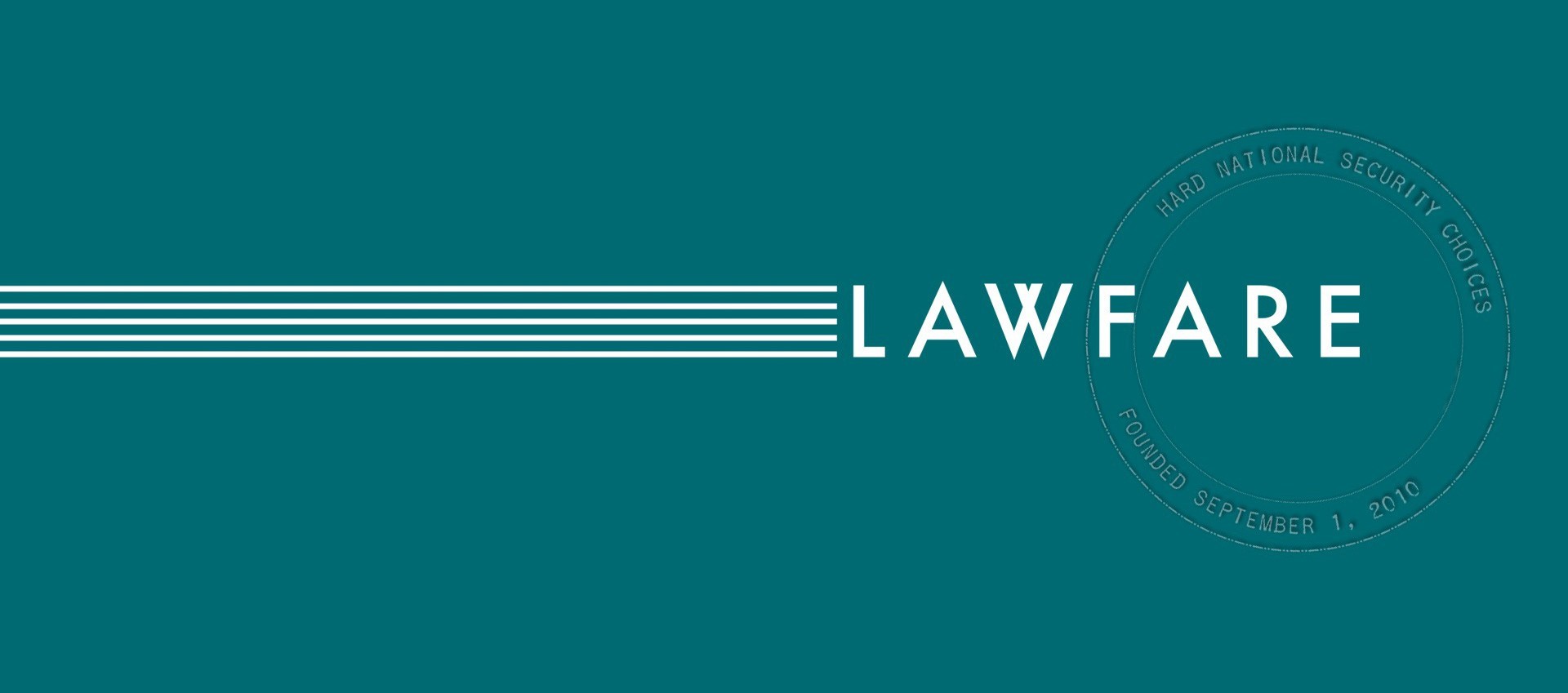Published by The Lawfare Institute
in Cooperation With

On Lawfare Live, Natalie Orpett sat down with Roger Parloff and James Pearce to discuss a judge dismissing the indictments against both former FBI Director James Comey and New York Attorney General Letitia James, ruling that Lindsey Halligan was unlawfully appointed to serve as interim U.S. Attorney for the Eastern District of Virginia.
Katherine Pompilio and Benjamin Wittes created a choose-your-own-adventure game summarizing all the options that remain to Halligan for prosecuting Comey.
Wittes considered District Judge Cameron Currie’s dismissal of the cases against Comey and Kames on the grounds that Halligan was unlawfully appointed as U.S. attorney. Wittes argued that dismissing for a technicality did not adequately reflect the egregiousness of the cases and urged the defense to seek further sanctions against Halligan—including, if possible, her law license.
Olivia Manes and Mari Lemmie shared Judge Currie’s dismissals of the cases against Comey and James.
On Lawfare Daily, Wittes sat down with Parloff, Molly Roberts, Eric Columbus, and Loren Voss to discuss a judge ordering the Trump administration to end the National Guard deployment in D.C., updates in the prosecutions of Comey and James, a hearing in Kilmar Abrego Garcia’s civil case, and more.
Parloff reported from a Nov. 20 hearing in the civil case of Abrego Garcia, in which Abrego petitioned for release while the government sought to dissolve the injunction blocking his removal. Parloff contextualized a government witness’s testimony that—contrary to public statements by Costa Rican officials—Costa Rica was unwilling to accept Abrego.
Mark Sandy broke down how new authorities asserted by the Trump administration’s Office of Management and Budget (OMB) encroach upon Congress’s power over appropriations. Sandy analyzed OMB’s legal justifications for these authorities and sketched out ways for Congress to defend its power of the purse.
On Lawfare Daily, Wittes sat down with Orpett and Michael Feinberg to discuss their recent piece on the government shutdown deal provision giving senators grounds to sue when their metadata is accessed for investigation without notification. The three discussed the provision’s consequences for the separation of powers, investigative resources available to law enforcement, the large amount of money to which senators would be entitled, and more.
Charlie Bullock argued that lawmakers should take inspiration from the successful regulation of past technologies—including electricity and aviation—when working to balance state and preemptive federal laws on artificial intelligence (AI). Bullock emphasized the importance of an iterative regulatory process that allows that state-federal balance to adjust to fast-developing AI products.
Kubo Mačák responded to a Nov. 3 Lawfare piece urging Western governments to learn from “responsibly irresponsible” cyber operations that lean on civilian hacktivist help and target civilian infrastructure in enemy territory. Mačák argued that international humanitarian law’s prohibition on cyberattacks that target civilian infrastructure cannot be put aside for military convenience, and that there are more responsible and lawful ways to operationalize civilians’ cyber expertise.
In the latest installment of Lawfare’s Foreign Policy Essay series, Mitchell Gallagher argued that today’s cyber threat landscape requires welcoming new members to the Five Eyes intelligence-sharing alliance.
On Lawfare Daily, Wittes sat down with Anastasiia Lapatina and Eric Ciaramella to discuss the recent machinations surrounding a potential Russia-Ukraine peace deal. The three unpacked the contours of the American position on the matter, whether the United States is abandoning Ukraine, whether the administration will back off the 28-point document it reportedly put together with Russian negotiators, and more
Wittes discussed the heavy shame warranted by U.S. support for a “peace deal” in the Russia-Ukraine War that satisfies the Kremlin’s most unconscionable demands.
Ariane Tabatabai described how a confluence of domestic challenges have dampened French President Emmanuel Macron’s popularity at home even as he’s attempted to exert influence on the global stage. Tabatabai reflected on how the “macronist” approach to foreign relations might influence Paris’s role in NATO and the European Union after Macron leaves office.
Alena Gribanova explained how the European Union’s Digital Services Act gives regulators unprecedented and untested power to shape historical memory—as well as future war crimes prosecutions—by determining which images of violence are allowed to exist on digital platforms.
Kevin Frazier argued that China’s recent innovations in undersea drones constitute a “Sputnik moment” that should catalyze concerted attention to and investment in the U.S.’s own undersea cable system.
Anna Hickey shared Lawfare’s new lecture series where Laura Field, the author of “Furious Minds: The Making of the MAGA New Right,” will teach a 6-part class on the conservative intellectual movement and how it has shaped Donald Trump’s presidency.
And Isabel Arroyo shared Fulton County Superior Court Judge Scott McAfee’s order granting the dismissal of the election conspiracy case against President Trump in Georgia.
And that was the week that was.






